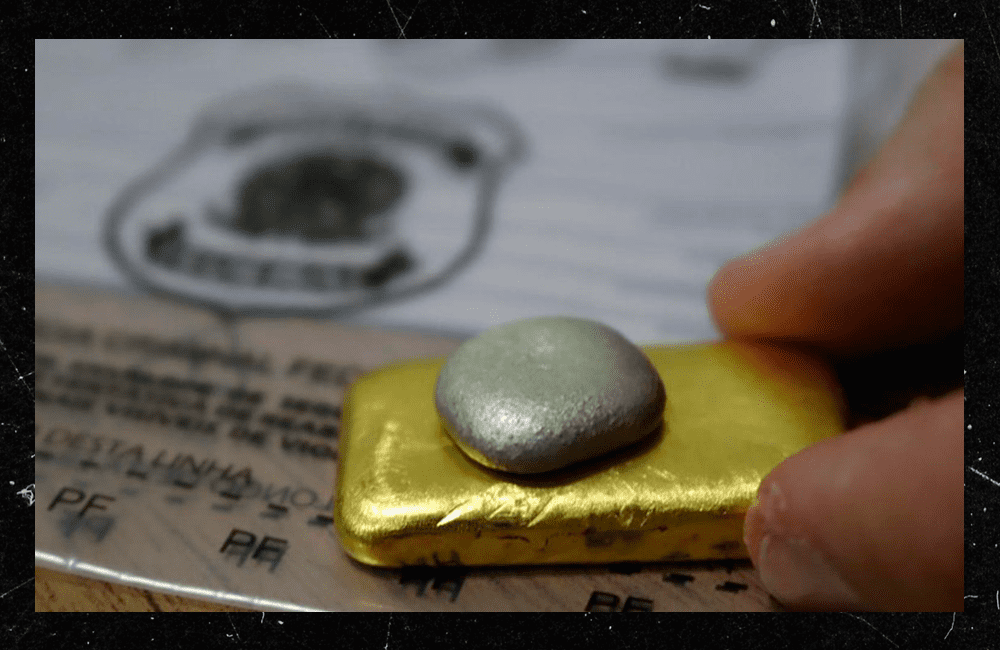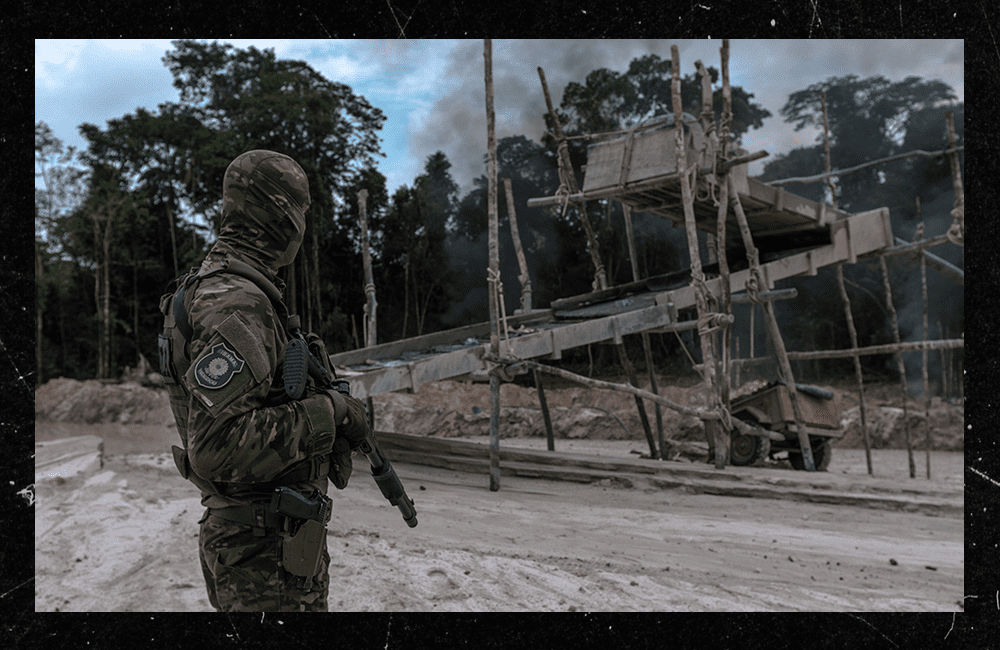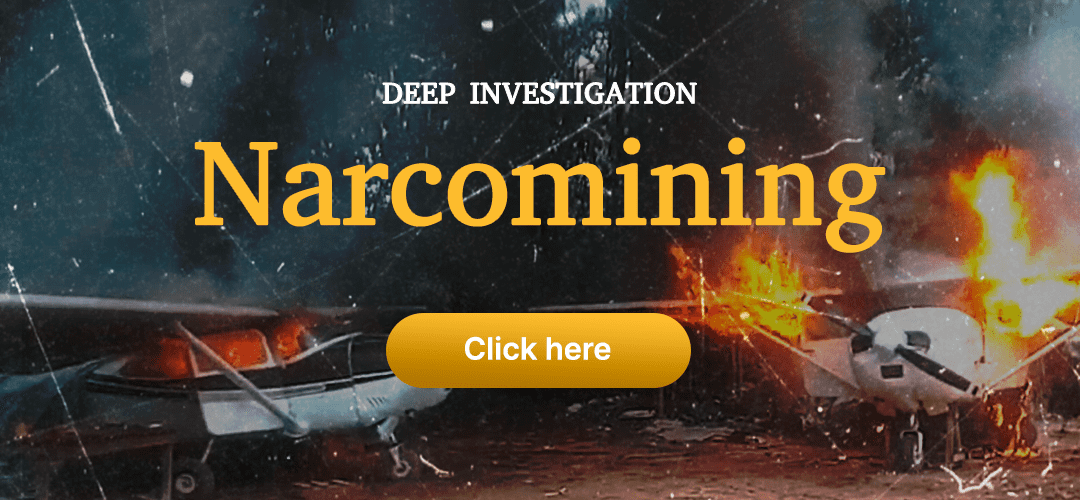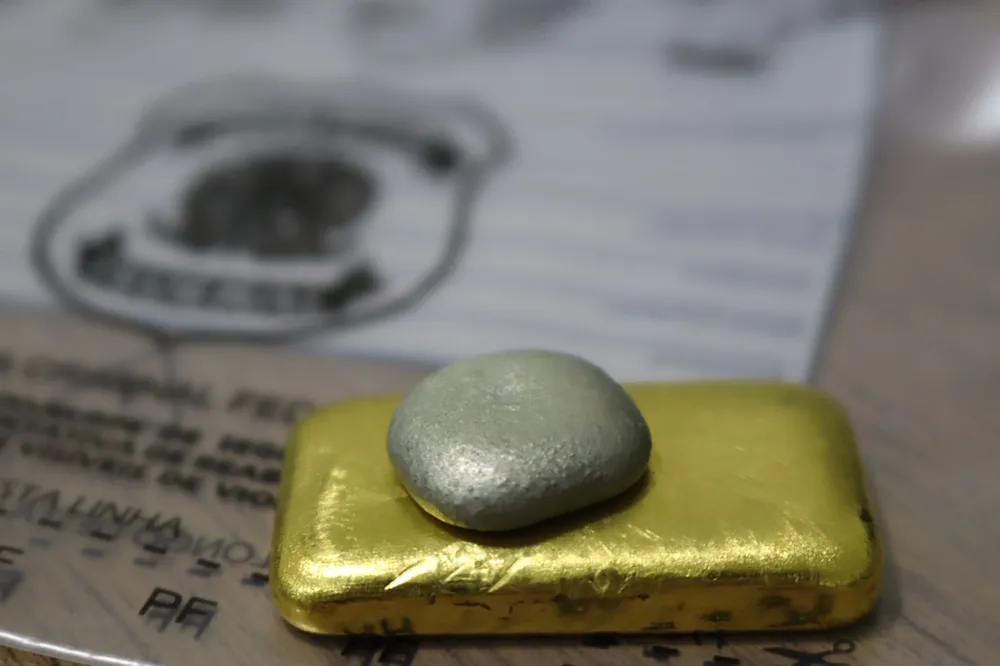
Indicted by the Federal Police as the leader of an organization that trafficked cocaine from Bolivia to the Brazilian Amazon, Heverton Soares, known as Grota, established his business in Itaituba, in the state of Pará, in 2018.
In the municipality most affected by illegal mining in Brazil, Grota made transactions with businessmen, mining companies and financial institutions that are also the target of lawsuits for their involvement with illegal gold, reveal police investigation documents analyzed by Repórter Brasil.
When analyzing the bank accounts of the group linked to Grota, the Federal Police also found other individuals and companies that had already entered the radar of police operations in the last five years.
“There is still extreme fragility in the gold extraction and trade chains in the country, especially those that come from gold mining,” explains Luisa Molina, an anthropologist and researcher at the Socio-Environmental Institute (ISA).
“And it’s a business that is restricted to a small number of groups. So it’s common to see the same actors in suspicious schemes being named in different police investigations,” she adds.
Mining companies can’t buy from garimpos

One of Grota’s business partners that falls into this situation is Gana Gold, a mining company that was banned by the courts in July last year after selling more than R$1 billion in gold from the Tapajós protected area under an irregular environmental license.
According to the Federal Police, the company deposited more than R$3.3 million in accounts linked to Grota. However, there is no proof that any of the goods were delivered.
Brazilian Law 7.766/1989 establishes that only cooperatives and securities distributor companies, called DTVM, regulated by the Central Bank, can buy gold from gold mines. As a mining company, Gana Gold is not authorized to buy ore from garimpos, which raises suspicions about its relationship with Grota.
Gana Gold is also under investigation for its alleged involvement in the purchase of illegal gold from Yanomami territory. The Federal Police identified payments of R$2 million from the mining company to Rodrigo Martins de Mello, known as Rodrigo “Cataratas”.
An emerging figure in the national gold market, Mello is identified as one of the main leaders of an illegal transportation scheme using airplanes to transport gold from Yanomami territory, as revealed by the Folha de S.Paulo newspaper.
Another company in the Federal Police’s sights is Fênix DTVM, which bought R$ 450,000 in gold from one of Grota’s mines in the Tapajós APA. At the end of September, the Cuiabá-based company was one of the targets of a PF operation investigating R$10 billion in illegal gold purchases in the Amazon. According to the PF, ghost mines – which show no signs of exploitation – were used to heat up illegal gold.
In April, Repórter Brasil showed that Fênix acquired 1 ton of gold from a mine in Cumaru do Norte, Pará, where satellite images show no signs of activity corresponding to such a high production of ore. After contacting us, the company said it had removed the gold mine from its list of suppliers.
Fênix DTVM confirmed that it had bought gold from Grota, but said that the businessman’s registration had been suspended after he became the target of the Narcos Gold operation.
Regarding the Federal Police operation that raided the company’s headquarters last month, Fênix confirmed that it had bought gold from three companies investigated for illegal gold laundering. However, it said that all of them had already been removed from the list of suppliers in February of this year. DTVM’s management also said that the Federal Police had made a copy of the data on the company’s internal server and that it was cooperating with the investigations.
Business with the ‘King of Gold’
Grota’s client list also includes another businessman investigated by the Federal Police for illegal gold trading: Dirceu Federico Sobrinho, owner of FD’Gold DTVM, and known as the “King of Gold”. The company bought almost 2 kg of gold from Grota in September 2020.
The ore also came from an area with irregular environmental licensing, according to ICMBio. In addition, the Federal Police cites suspicious payments from FD’Gold to one of the pilots who worked for Grota, denounced by the Pará State Public Prosecutor’s Office (MPPA) for money laundering and drug trafficking.
President of the National Gold Association (Anoro), Sobrinho was arrested in September last year in another Federal Police operation, in the state of Rondonia. The investigation revealed an illegal gold extraction scheme using rafts and dredges on rivers in the Amazon.
Gana Gold’s lawyer Renilson Garcia said that the company’s “legal team has decided not to give any kind of interview”. Rodrigo Martins de Mello also did not respond to contacts.
In a statement, Dirceu Frederico Sobrinho said that he “never met” Grota and that he only bought gold after he presented “the relevant documents” in June 2020. The note also states that the Itaituba businessman was removed from FD’Gold’s list of suppliers on the recommendation of DTVM’s compliance department.
Regarding the transfers of money to a Grota pilot identified by the Federal Police, Frederico Sobrinho replied that he “never” had any relationship with “Mr. Heverton’s pilots”, and that he “never flew on any of Grota’s airplanes”.
The Federal Police investigations also show that another well-known businessman from Itaituba did business with Grota: Roberto Katsuda, a representative of the South Korean car manufacturer Hyundai, a manufacturer of heavy machinery used in illegal mining, as already revealed by Repórter Brasil.
According to the Federal Police, members of Grota’s group bought excavators in cash, delivered to the headquarters of Katsuda’s company, BMG Hyundai, in downtown São Paulo. Grota also allegedly bought an airplane from Katsuda for R$300,000, but the deal was not reported to the National Civil Aviation Agency, according to the police report.
When contacted, Roberto Katsuda’s defense said that his client “has already given all the clarifications that have cleared up any doubts about any financial involvement” with Grota’s group.
The law firm that represents Grota responded in a statement that “the technical defense is convinced that the indisputable innocence of the accused will be proven in the end”. Read the full response here.
The note classifies the Narcos Gold investigation as “a story with crazy aspects” and argues that the investigations, even though they have been going on for almost three years, “have not managed to add a single piece of evidence to the charges”.
This report was supported by the Pulitzer Center’s Rainforest Investigations Network. Read more.


